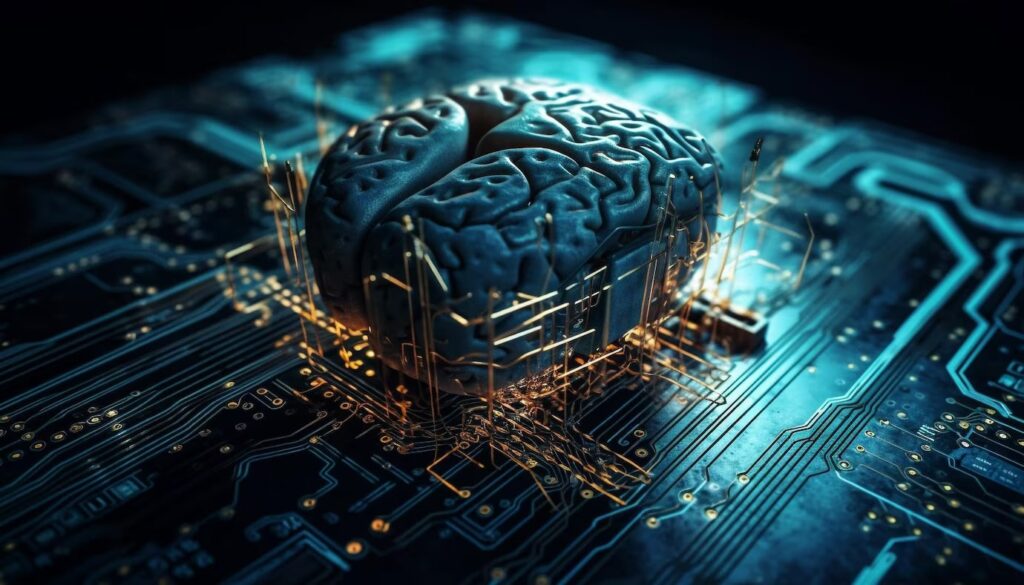
AI has become an essential component of our contemporary society, influencing diverse facets of our existence. As AI progresses at a remarkable rate, it gives rise to captivating inquiries regarding its possible ramifications for the future of humankind. This piece delves into the profound consequences of AI technology and its potential influence on different domains.
The Rise of AI
AI Transforming Industries
- AI has revolutionized industries such as healthcare, finance, and transportation
- Healthcare: AI facilitates accurate diagnoses and assists in personalized treatments through machine learning algorithms
- Finance: Advanced AI algorithms analyze vast amounts of financial data, improving predictions and risk assessments
- Transportation: AI powers self-driving vehicles, enhancing safety and efficiency on the roads.
Transitioning Workforce
- The rise of AI has sparked concerns about job displacement
- Certain routine tasks may become automated, necessitating the reskilling of workers to adapt to new jobs
- However, AI also creates new employment opportunities, particularly in fields like AI development and data analysis.
Ethical Considerations
- The integration of AI into society demands careful ethical considerations
- Ensuring transparency and accountability of AI systems is crucial to avoid potential biases and discrimination
- Ethical frameworks must be established to govern AI’s use in areas like autonomous weapons and privacy invasion.
AI’s Impact on Human Life
Healthcare Advancements
- AI-powered medical systems enable early disease detection, personalized treatment plans, and drug discovery
- Improved diagnostics enhance patient outcomes and reduce medical errors, ultimately saving lives.
Enhanced Productivity
- Through AI automation, businesses can streamline processes and improve efficiency
- Tasks such as data analysis, customer service, and repetitive manufacturing can be handled swiftly and accurately by AI systems.
Transportation Revolution
- Self-driving cars promise safer roads and reduce traffic congestion
- AI algorithms optimize routes and predict potential hazards, improving commuting experiences.
AI-Assisted Education
- AI-based tutoring programs provide personalized learning experiences, catering to individual student needs
- Virtual reality and augmented reality technologies powered by AI provide immersive educational environments.
The Future of AI and Humanity
Integration with Human Intelligence
- Futuristic possibilities include merging AI with human intelligence, augmenting cognitive abilities
- Neural interfaces may allow direct communication between the human brain and AI systems, leading to new realms of knowledge and experiences.
Socioeconomic Implications
- As AI evolves, societal structures may be transformed
- Income disparities could widen, highlighting the need for comprehensive policies to address potential socioeconomic challenges.
Ethical Dilemmas
- Discussions surrounding the moral status of AI and its potential rights have already begun
- Maintaining control over AI systems and preventing the creation of superintelligent entities that may surpass human control are vital considerations.
In conclusion, AI technology holds immense potential to shape the future of humanity. As it continues to evolve and integrate into various industries, vast opportunities and challenges arise. By embracing AI ethically and proactively, we can harness its power to elevate human life, while safeguarding against potential risks. The future lies in our hands as we navigate the exciting frontier of artificial intelligence.

Pingback: The Future of AI in Agriculture
Pingback: AI and the Future of Work - GPT Free
Pingback: A Simple Trick to INCREASE Your Instagram Followers with ChatGPT